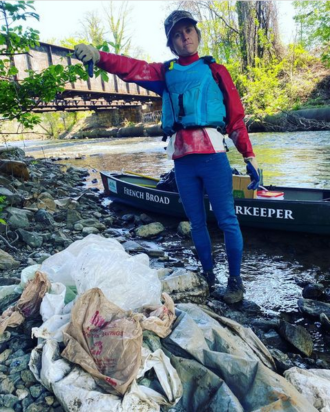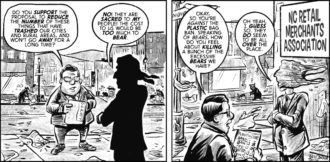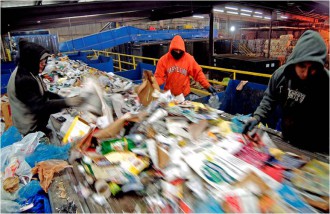“What we as citizens can do now to minimize the number of plastic bags that end up in the landfill is to deposit our plastic bags at various stores that provide bins for this purpose.”


“What we as citizens can do now to minimize the number of plastic bags that end up in the landfill is to deposit our plastic bags at various stores that provide bins for this purpose.”

“The best way to replace plastic bags is by making cloth and canvas ones. Cotton is a renewable resource.”

“Even if it is something as simple as using paper bags instead of plastic bags, every little bit counts.”

“The solution, to my mind, is to educate the public about the harm that single-use plastic bags can inflict on the environment, not to ban the use of these bags through legislation.”

“A third of microplastics we’re seeing in the French Broad watershed is coming from these plastics that we might use for 12 minutes and end up throwing away. So anything we can do to curb the input of that into our daily lives the better,” said Anna Alsobrook, watershed science and policy manager for MountainTrue.

Jane L. Laping is a member of Asheville GreenWorks’ Oakley TreeKeepers.

“Mountain Xpress readers: Please attend the Sept. 27 meeting and urge Asheville City Council to take immediate action to protect public health and the environment.”

“If the purpose of the initiative by MountainTrue and the Sierra Club is to reduce single-use plastics, why are they proposing a 10-cent charge for paper bags?”

A study conducted by MountainTrue found an average of 19 microplastic particles — pieces smaller than 5 millimeters, formed by the breakdown of larger plastics — per liter of water in local river systems. Exposure to microplastics has been tied to allergic reactions and other health impacts in humans, as well as negative effects on fish.


Asheville recycled 590 pounds of trash per household per year in fiscal year 2016-17, the highest rate among North Carolina cities. But when you throw your commingled recyclables in the blue bins, where do they go? How does single-stream recycling work? Does it work? Xpress takes an inside look.
Buncombe County’s Environmental Advisory Board met Friday morning, Oct. 21, to consider the prospects for either reducing or banning the use of plastic shopping bags here, among other initiatives.